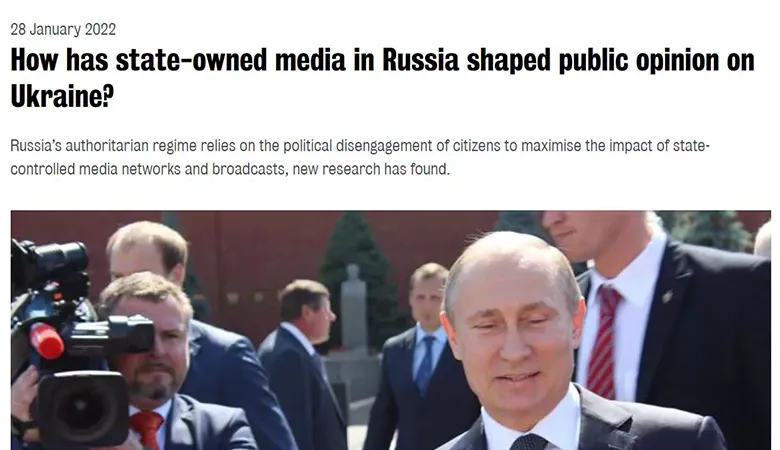
Earlier in 2022, Dr Maxim Alyukov, a research associate at the King’s Russia Institute, published new research on how Russia’s authoritarian regime relies on the political disengagement of citizens to maximise the impact of state-controlled media networks and broadcasts.
The paper, published in the journal Europe-Asia Studies, said repetition of easily-accessible themes and ideas has allowed Russian TV news stations to shape public opinion about the conflict in Ukraine, garnering broad support for President Vladimir Putin and his course of military action in eastern Ukraine starting from 2014.
However, while the suppression of political engagement has created space for state-owned media to shape public opinion and discourse, the research suggested the effects could be short-lived and means any perceived support for the regime is superficial and subject to rapid change.